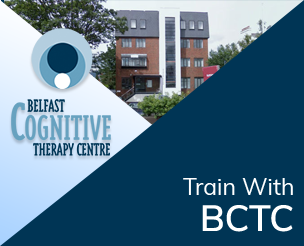‘New Year, New Me’
We’ve all been there – after the hectic holiday period, we feel we’ve over-indulged, and the prospect of New Year’s Eve makes us reflect on the past year. We make a decision that the next year will be different – ‘New Year, New Me.’
There are many things we might want to change – exercise, diet, smoking, drinking… The list goes on.
The January Push
Gyms, weight loss and stopping smoking groups all see a huge increase in attendance in January because of our intentions to get healthy. We decide to make an overhaul of our lifestyles and get involved, often throwing ourselves in at the deep end.
The February Slump – Why We Fall Off the Horse
During January, we often push ourselves into a strict regime in the gym or a gruelling diet that leaves us feeling deprived. We get an initial boost for sticking to the plan for a few weeks, then life begins to get in the way. Finances might get tight, energy levels may drop, work may get busy…
And our new regime begins to fall apart.
So why is it so difficult to get back on track?
Reason One – Changing Too Much, Too Quickly
Our brain uses approximately 20% of all the energy in our body – a huge amount. It’s always trying to find ways to cut corners when making choices, especially about our general lifestyle.
It relies on habits; well-worn grooves of automatic behaviour that guide most choices. This is an easier, cost-effective way to decide how to handle decisions like what to eat, where to go, how active to be, and so on.
When we try to change too much, too quickly, we are no longer using habits. Instead, we’re putting a lot of effort into making a large change, and this takes willpower.
Willpower is a costly resource, and usually linked to changes that we’re finding difficult to apply. The brain cannot keep up this level of effort, and with many large changes to diet and exercise, for instance, we often feel deprived and unsatisfied.
Inevitably, willpower becomes a finite resource, and our brain reverts back to old habits.
The key here is to implement gradual changes over a sustained period of time. For any change to last for any length of time, we need to be able to live with that change – taking it in small, achievable steps and seeing it as a process to build on, allows us to gradually build up new habits to take the place of the old ones.
Reason Two – Not Being Specific About Changes
We often face the New Year with a desire to ‘get healthy’ or ‘be fitter’. The difficulty with these aims is that they don’t tell us what steps we need to take.
Even when making gradual changes to habits, if we’re not clear on how we’re going to change, we’re much less likely to experience the satisfaction we want. As before, the brain will revert back to old habits that it’s familiar with, if no clear and achievable alternative is available to it.
When working towards a goal, make it as specific as you can. Whether it’s attending a new exercise class once a week with a friend, jogging around your favourite park for twenty minutes twice a week, or resolving to cook at home five nights a week, these give you something concrete to aim for.
Crucially, also ask yourself what will get in the way of these changes, and plan how you can address this or adapt your lifestyle as needed.
Reason Three – Criticising Ourselves After a Fall
So much of our self-criticism and self-blame comes from misunderstanding how our brains and bodies work. Part of implementing any lifestyle change is that we will face setbacks – our brain wants to take the familiar path of old habits.
Resisting the tendency to self-criticise is one of the hardest parts of making any change. Re-focusing on the facts of the situation, exploring what got in our way and how we can change this the next time, are crucial factors in helping us to keep growing and developing.
Chronic self-criticism often takes support to overcome. At BCTC, we use a range of methods including core cognitive behavioural therapy (CBT) skills, often focusing on underlying core beliefs that have been with us for many years, as well as compassion-focused therapy (CFT) to help our clients to find alternative ways to approach life’s setbacks, without the need to condemn themselves.
Have you struggled to make your New Year’s resolutions a reality?
Are you working to overcome self-criticism?
If yes, then don’t hesitate to contact us to enquire about meeting with a therapist for empathic, confidential support using evidence-based CBT and CFT methods.


